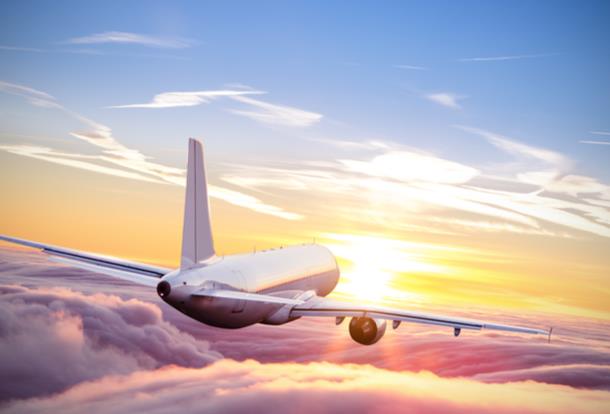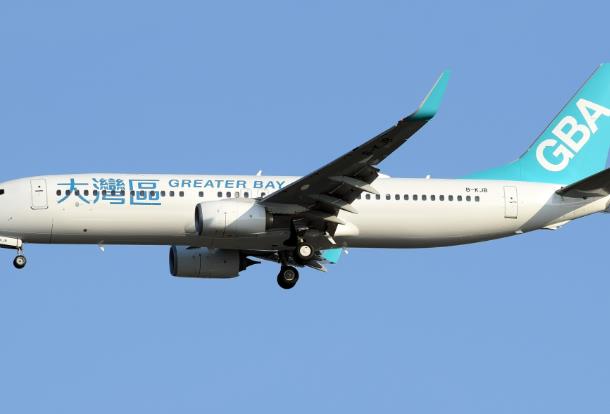Travel research company IdeaWorksCompany and B2B car rental service platform CarTrawler jointly released a forecast report to reveal 8 major changes in the travel industry during the next few months after the epidemic.
1. Capacity and inventory will decrease through business failures
IATA estimates global passenger traffic will drop nearly 40 percent for 2020 based upon a spread of COVID-19 beyond earlier predictions. IATA believes revenue will decrease by more than $250 billion for the year. Last year’s revenue estimate was approximately $900 billion, so this represents a nearly 30% loss. As bad as this appears, IATA’s projections might be overly optimistic. As goes the airline industry, so go vast swaths of the travel business to include hotels, vacation rentals, car hire, and sightseeing. Each of these categories will have business failures. Economic reality says many companies will cease to exist or will stumble along and eventually fail.
2. Closer to home will define leisure travel for the near term
“Safer close to home” will most certainly define the near-term psychology of leisure travel, and may also apply to business travel habits.
WHO declared COVID-19 a pandemic on 11 March 2020. Let’s assume this represents day zero on the IATA graph. For the SARS epidemic, travel began to recover three to four months after the start of the crisis; this equates to June and July for 2020. That’s unlikely to happen given the severity of COVID-19. The lodging industry might make a sincere attempt to promote bookings for August out of a desire to capture the last remaining portion of the Northern Hemisphere’s summer season. The chart displays very early evidence of a COVID-19 recovery in China, which provides some encouragement. Data provided by the USDOT describes a long arc for recovery with US travel taking two to three years to recover from the 9/11 terrorism event.
Travel will be strongest within regional geographic areas. Americans will travel within America, Europeans within Europe, with Asia, perhaps seeing the same trend. Long-haul international travel will not be attractive for most leisure travelers. This is due to the fear of being so far from home and justifiable worries about the ability to return to one’s home country in the event of an incident.
Travel by automobile, passenger rail, and shorter flights will see the first indication of renewed demand. Hotels, vacation rentals, car hire, airport transfers, and sightseeing activities serving these markets will see the strongest demand. Within this regional geography, rural and outdoor destinations will be the most popular.
3. Health safety will become an ever-present factor
Perhaps we will never touch airline tray tables, hotel television remote controls, and car hire steering wheels without hesitation again. Personal sanitation assurance while using public facilities is now a priority. However, the often sloppy behavior of our species does suggest this may disappear with the passage of time. Protection against disease will become an expectation in the same manner that protection from terrorism has been built into the travel system. In much the same way that travel companies seek to be rated for quality of hospitality or generosity of frequent flyer programs, so too will new surveys be introduced to grade providers on disease prevention.
Delta has introduced a branded promise to ensure better sanitation. “Delta Clean” is positioned as a continuing commitment. This includes “disinfecting high-touch areas customers care most about being clean, like tray tables, seat-back entertainment screens, armrests and seat-back pockets.” The operations crew may delay flight departures to request a cleaning crew return to the aircraft for additional cleaning.
4. Consumers will expect low prices, and low prices will stimulate traffic
Everyone, with few exceptions, will focus on frugality during and after the pandemic. The wealthy have seen their investment values crumble and will naturally feel pinched. For middle- and lower-income consumers, the pandemic has an immediate financial effect. Business travel will be limited to meet essential needs. Two factors will influence consumer spending. First, the collapse of demand, and the desire by suppliers to build traffic, will make low prices the prevalent means of promotion. Secondly, consumers have been trained to expect low prices during economic difficulties. Unfortunately for suppliers, this effectively “doubles” the need to deliver robust discounts.
Pushing hard on a la carte fees in a post-pandemic world will be problematic for the reasons described above. Expect regulators, reporters, and consumers to be sensitive to any attempt to boost revenue by increasing fees.
5. Government investment will have strings attached
Airlines has been early and specifically identified recipients of major government support. The list of programs providing outright operating grants, loans, and deferred airport expenses grows with every passing day. Taken together, this activity will save the airline industry from complete ruin.
Consumers will also be very aware of this and alert to any bad behavior. Quite naturally, politicians and regulators will deploy this as leverage to cure the real and perceived sins of the airline industry. This will also apply to other sectors in the travel business that receive government support. 2020 and 2021 will be years in which news of any executive bonus payouts, including stock options, will be met with howls of anger. When airlines recover, it will be due to the support of consumers, hard work of employees, nimble managers, and assistance provided by governments. Airline management teams must carefully balance very necessary revenue (and cost reduction) initiatives against public scrutiny of fairness.
6. Change fees will be even more unpopular
Many in today’s airline business might not be aware of this, but change fees and nonrefundable fares are relatively new pricing policies. Back in 1985 American Airlines introduced Ultimate Supersaver fares with discounts up to 70 percent. News of the fare cuts sent airline stocks into a tailspin. American introduced the fares as a tool to win back passengers from low-cost carriers, which were expanding rapidly at the time.
American’s management likely agreed to the discounts subject to a major caveat: Ultimate Supersavers would have stringent rules regarding changes and cancellations. According to the Chicago Tribune, “For the first time on a broad scale, ticket-buyers who change plans will be penalized. Once the Ultimate Supersaver ticket is bought, 25 percent of the price will be nonrefundable.”The resulting pushback by consumers was truly punishing for reservation agents and airport customer service staff.
Thirty-five years later these policies continue to exist largely out of misguided tradition. That’s a bold statement that will undoubtedly make me unpopular among some in the airline business. But allow me to offer defense with evidence. Southwest Airlines is among the most profitable airlines in the world and has never charged change or cancellation fees. Southwest has combined this policy with a record of profitability that is the envy of the airline industry; so it is possible.
Southwest does sell non-refundable fares. However, a cancellation made at least 10 minutes before departure is required (a very modest requirement). The refund is issued in the form of travel funds which expire one year from the date of original ticket purchase. The airline offers an extended expiration during the pandemic.
For the global airline industry, this genie is already out of the bottle. In response to the pandemic, airlines all over the world have opened the floodgates of flexibility. Changes can be made without fees, with refunds issued as cash or travel credit. Airlines are not alone, with hotels, vacation rental, and car hire companies waiving cancellation fees for pre-paid and non-changeable bookings. For consumers, this is a welcome change during a time of great uncertainty. When travel companies feel compelled by finances to reinstitute change fees, the market will not react kindly . . . and neither will regulators and politicians.
Wizz Air has introduced an attractive policy to encourage consumers to request a travel credit rather than a refund to a credit or debit card. For flight suspensions made by Wizz Air, the airline will automatically refund 120% of the original fare as travel credit for bookings made on Wizzair.com and the mobile app. Passengers may opt for a 100% refund to the original form of payment. This innovation undoubtedly pleases many passengers while preserving cash for the airline.
7. A portion of business travel will never return
Some business travel will be replaced by technology because people have adapted to remote meetings. While leisure travel represents days of enjoyment, the core value of a business trip might literally be a one-hour meeting. Ben Baldanza, who was the CEO of Spirit Airlines for eleven years, predicts a 5 to 10 percent long term reduction. This seems a reasonable guess. In an email exchange, he says shorter meetings between a couple of people could easily be replaced by meeting online, whereas sales calls and factory visits almost always require travel to the site.
National Car Rental conducted a survey of 995 US-based business travelers in November 2019. Among the respondents, 81 percent believe business travel “helps them build key relationships they otherwise couldn’t without business travel.” That’s a strong endorsement for the power of “being there.” The survey also found 81 percent blend leisure and business purposes into the same trip. This “dual-purpose” travel creates twice the reason for someone to take a trip and will help sustain overall travel activity.
8. Google will be distracted by other opportunities
The travel industry has been concerned Alphabet, Inc., otherwise known as Google, would eventually dominate the travel booking business through Google Flights or Maps. This could occur at the moment a search is conducted and circumvent a consumer linking to booking sites operates by airlines, hotels, vacation rentals, car hire companies, and even online travel agents. Another method of capture could be tied to the dominance of Gmail which delivers millions of supplier booking confirmations to consumer inboxes every day. Google could act as a travel gateway by directing consumers in much the same way travel agents and global distribution systems have done in the past. I believe the pandemic has reduced the likelihood of this occurring as Google seeks more immediate opportunities in other industries.
Google is also working with public health officials to use its vast collection of data to track the movement of people during the pandemic. The information is delivered courtesy of the location setting on a mobile phone. The company is posting information on travel patterns for more than 130 countries. Below is the listing for Greater London which includes these location categories: 1) grocery & pharmacy, 2) parks, 3) residential, 4) retail & recreation, 5) transit stations, and 6) workplaces. In a single glance, public safety administrators can determine if people are staying home from work. These efforts are a global display of Google’s capabilities and will not be forgotten by potential customers after the pandemic passes.
Google’s opportunities in the travel industry are pale by comparison. Our industry no longer represents an opportunity for quick profits. In addition, the task of selling travel requires direct customer service support; this has never been an area of strength for Google. Contrast all of this with the vast funds that will flow into the areas of online education and public safety during the next 5 years, and you have an answer. Google is not motivated to conquer the travel industry.




